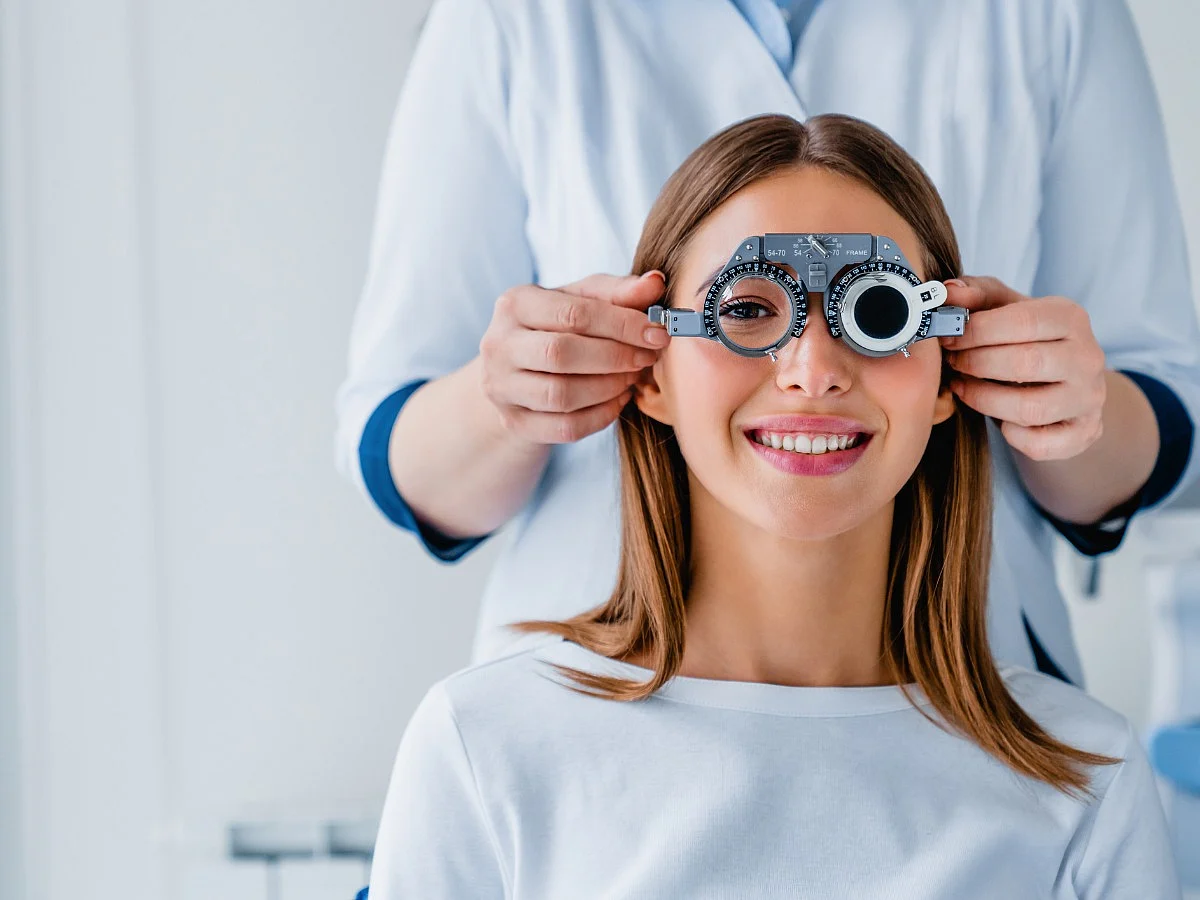5 Tips To Keep Eyes Healthy
Check these tips that will help you protect your eyes and keep them healthy in the longer run

advertisement
Eyes are an important part of our body. Most people rely on their eyes to see and make sense of the world around them. But some eye diseases also lead to vision loss, so it is important to identify and treat eye diseases as early as possible. One must get their eyes checked as often as their health care provider recommends it, or if they tend to have any new vision problems. And just as it is important to keep the body healthy, one also needs to keep their eyes healthy.
Sight degeneration or impairment has a significant impact on people’s quality of life. Prolonging eye health and preventing possible diseases is a healthy lifestyle habit that people should always keep in mind. One must wear sunglasses all year-round, must avoid smoking, be mindful of what they eat, lubricate their eyes, avoid rubbing their eyes, always keep glasses and lenses in good condition, ensure a good night’s sleep and go to regular check-ups.
1. Eat a Balanced Diet
A well-balanced diet can help you maintain a healthy weight and reduce your risk of developing age-related vision problems such as cataracts and macular degeneration. A well-balanced diet includes plenty of green leafy vegetables, such as spinach, kale, and collards, as well as oily fish, such as salmon, tuna, and other oily fish. Eggs, nuts, beans, and other nonmeat protein sources are also recommended. In addition, it's important to get plenty of fruits, oranges, and other citrus fruits or juices. Oysters and pork should also be consumed in a well-balanced diet.
These foods can help to prevent age-related vision problems by reducing oxidative stress and inflammation.
2. Quit Smoking
According to a recent study, smoking can cause a number of serious eye problems, including macular degeneration, cataracts, uveitis, and dry eye syndrome.
The macula is a sensitive component of the retina, which is the part of the eye that processes light and sends visual signals. Smoking can damage the macula, leading to vision loss. A recent study found that people who smoke are three times more likely to develop cataracts.
Another risk of smoking to the eyes is uveitis, an inflammation or irritation of the uvea causing glaucoma, cataracts, and retinal detachment. Dry eye syndrome is another condition that can affect the eyes as a result of smoking.
If you are a smoker, it is important to take steps to protect yourself, such as wearing a protective eye covering, reducing smoking rates, and investing in eye care.
3. Wear Sunglasses When You Step Out
Summer is here and while we’re all looking forward to fun in the sun, it’s important to remember to protect your eyes. Sunglasses are an effective way to do this.
Sungles are typically made out of UV protection lenses. This means they block or reflect harmful UVA and UVB light. You can tell if your sunglasses have UV protection by looking for a label on the sunglasses that says it protects 100% against both UVA and UVB rays.
In addition to protecting your eyes from the sun, sunglasses can also help prevent headaches and migraines, reduce eye strain, reduce glare, and offer protection from wind, dust, and debris. They can also help prevent eye diseases like cataracts and macular degeneration.
4. Protect Your Eyes While Using Computers & Mobiles
According to experts, staring at a computer screen for long hours can cause Eyestrain, blurry vision, difficulty focusing at a distance, dry eyes, and headaches.
If you are experiencing any of these symptoms, you should take breaks from looking at the computer screen and rest your eyes. The best thing you can do is to adjust your screen so that your eyes are level with the top of the monitor and try to avoid glaring from windows and lights.
It's also important to choose a comfortable and supportive chair for your neck and back, as well as a flat surface to place your phone or camera on. If your eyes are dry, you should also try using artificial tears or blink more frequently.
Finally, it's important to take breaks from looking at the computer screen and rest your eyes every 20 minutes. Look for at least 20 feet away from the screen and then take a 15-minute break.
5. Visit an Eye Doctor Regularly
Regular eye exams are essential for good eye health. They can help to detect any potential diseases or conditions that may affect your vision.
An eye exam can include a comprehensive eye care evaluation, as well as tests to see if you are nearsighted, farsighted, have an astigmatism (a curved cornea that blurs vision), or presbyopia (age-related vision changes).
In addition, your eye exam may also include tests to check for glaucoma, which is a condition that can cause vision loss, as well as external and microscopic examinations of your eyes before and after dilation.
It's important to see an ophthalmologist or optometrist for regular eye exams to ensure good eye health and the early detection of any potential problems.
(Disclaimer: Parts of this article were generated by AI and published after the content was editorially modified and verified by a human based on their own judgement and expertise. The Quint does not publish AI-generated content without direct human involvement and oversight).
(At The Quint, we question everything. Play an active role in shaping our journalism by becoming a member today.)